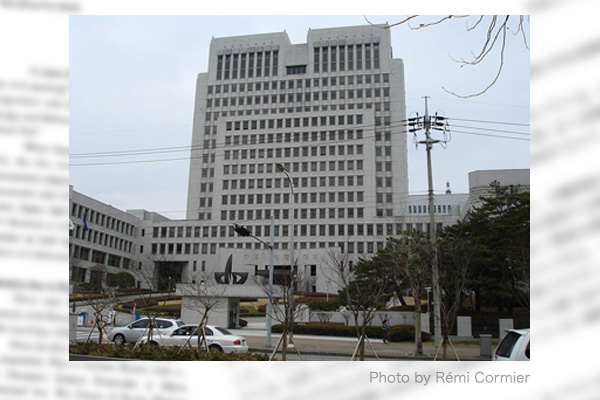On October 26, the South Korean Supreme Court reversed a second trial ruling that had fined Park Yu Ha, a professor emeritus at Sejong University, 10 million won (about $7,400) in a libel suit over her book “Comfort Women of the Empire” and remanded the case to the relevant high court. The Supreme Court ruled that description in the book was either an academic argument or an expression of opinion and it was difficult to see it as a statement of fact punishable as defamation. I would like to welcome the decision from the perspective of academic freedom.
Emphasizing academic freedom
In 2013, Park published “Comfort Women of the Empire” in South Korea. In June 2014, nine former wartime comfort women at the House of Nanum, a Buddhist organization supporting former comfort women, filed an application for a provisional injunction to prohibit the sale of the book and a civil libel lawsuit against her with the Seoul District Court and filed a criminal complaint for defamation with the prosecution.
In February 2015, the Seoul District Court granted the preliminary injunction application, banning the sale of the book and ordering the deletion of 34 of the 53 descriptions complained by the plaintiffs. (The book currently on sale in South Korea is a revised version after the deletion and the book published in Japan in 2014 is based on the revised version with further modifications by the author.)
In the civil lawsuit, the Seoul District Court ordered the defendant to pay 90 million won (10 million won per person) in damages in January 2016. The civil lawsuit is still pending.
Meanwhile, prosecutors indicted Park without arrest in November 2015 on defamation charges. The first criminal trial ruling in January 2017 acquitted the defendant. However, the second trial reversed the first trial ruling in October 2017, and fined her 10 million won for stating false facts in 11 of the 35 descriptions deemed defamatory by the prosecutors.
The Supreme Court called for caution in subjecting academic expression to defamation charges, stating that for the purpose of effectively guaranteeing the freedom of academic expression, the appropriateness of expressions used in academic research results should be examined through free public debate or peer review at academic societies, rather than being identified in criminal trials. This can be commendable from the perspective of academic freedom. From this perspective, I have criticized Professor Park in the public discourse while taking a critical view of the criminal trial (https://jinf.jp/feedback/archives/19941).
Having said that, it is a big problem for the Supreme Court to have wasted six years without issuing such a commonplace ruling. I can only think that the Supreme Court has failed to fulfill its responsibility and postponed its decision under the previous Moon Jae In government that was known for its anti-Japan attitude.
Failing to recognize comfort women as prostitutes
Meanwhile, the Supreme Court ruling said that the overall content and context of the book indicate that Professor Park did not use the descriptions in question to deny the coercive recruitment of Korean comfort women by Japanese military forces or support claims that Korean comfort women voluntarily engaged in prostitution or actively cooperated with Japanese forces. Park herself has repeatedly stated that she does not endorse Japanese rightists’ claim that comfort women were prostitutes. Therefore, unfortunately, the Korean Supreme Court ruling cannot be interpreted as recognizing the claim that comfort women were prostitutes as being within the scope of academic freedom.
In the trial of former Yonsei University professor Ryu Seok Chun who claimed that comfort women were prostitutes, a judge in April declared the trial effectively suspended on the grounds that the Supreme Court had not issued a ruling on Professor Park and that the prosecutors had not produced evidence of the coercive recruitment of comfort women. I would like to pay attention to how the latest Supreme Court ruling will influence the Ryu trial.
Tsutomu Nishioka is a senior fellow and a Planning Committee member at the Japan Institute for National Fundamentals and a specially-appointed professor at Reitaku University. He covers South and North Koreas.


